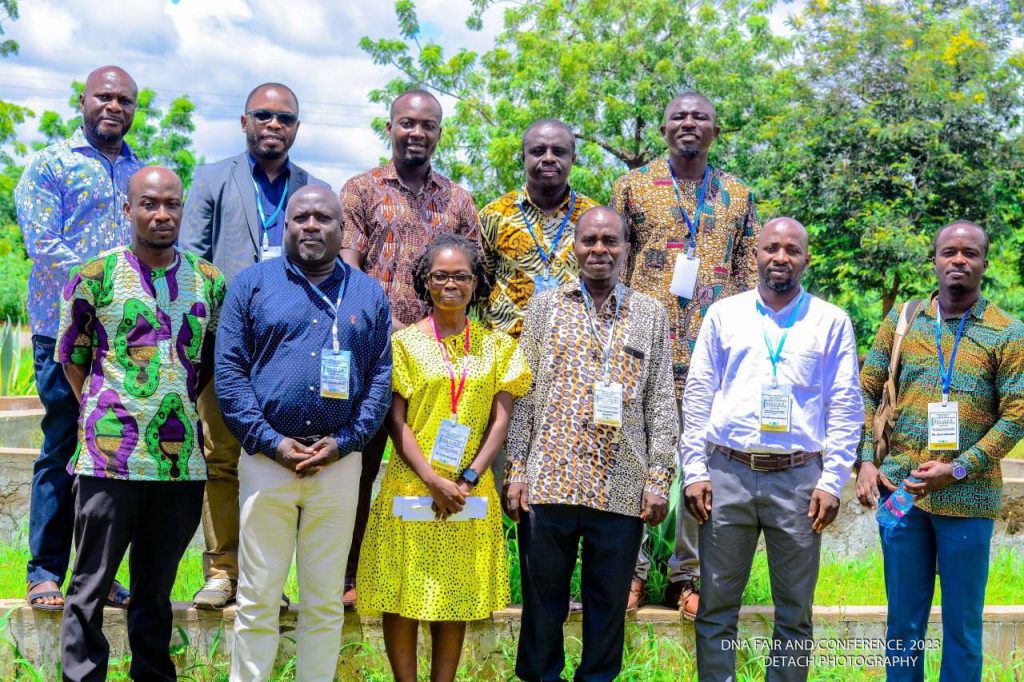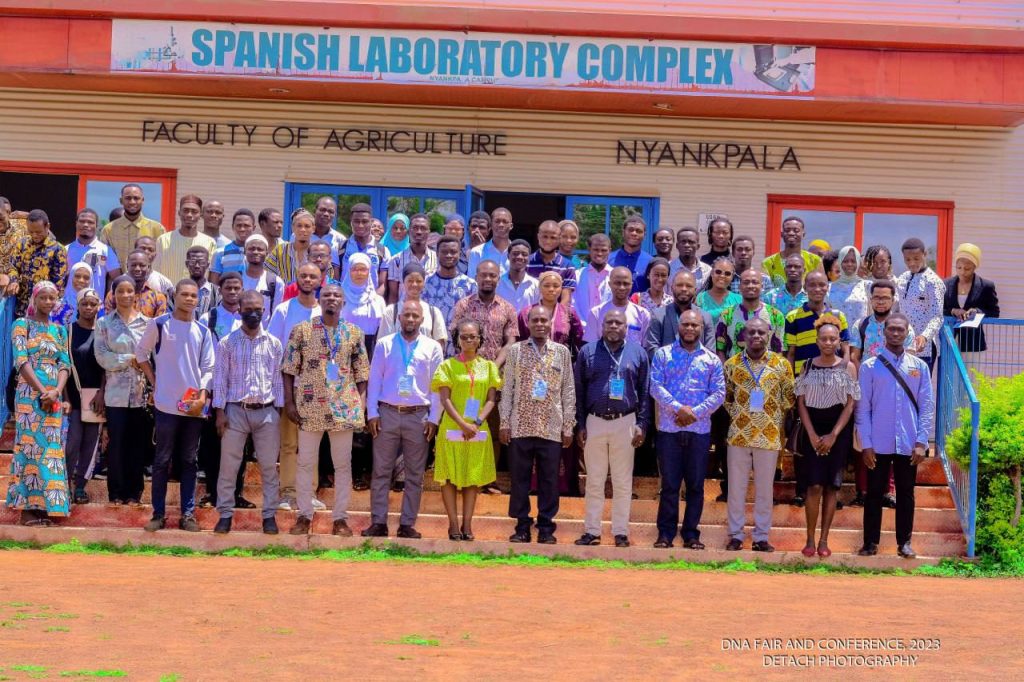Pioneering a Paradigm Shift in Scientific Exploration and Creative Expression
The Confident Scientist STEM Network hosted the first-ever DNA Fair and Conference in Ghana on July 13, 2023, at the University for Development Studies (UDS) Spanish Laboratory Complex, Nyankpala. With the theme “Towards a DNA Revolution: An Artistic Interpretation of the Molecule,” the event was a resounding success, drawing a diverse audience of students, staff, and enthusiasts from various disciplines and countries. Chaired by Dr. Abraham Kusi Obeng, the Head of the Department for Biotechnology and Molecular Biology at UDS, the conference explored the captivating intersection of science and art and its potential impact on Ghana’s future.
The Confident Scientist STEM Network: Science for Revolutionizing Society
The Chairman of “The Confident Scientist STEM Network” delivered a revolutionary welcome speech, highlighting the role of individual conviction, determination, and volunteerism in addressing societal challenges. He urged attendees to intertwine science with cultural identity, emphasizing that embracing the arts can ignite curiosity and promote innovation. His perspectives shed light on the immense potential for integrating science and art to drive progress in our societies.

Keynote Speech: “Arts Meets Science: Synergies and Benefits towards a DNA Revolution in Ghana”
Dr. Nelson Opoku, the Vice Dean of the UDS Faculty of Biosciences, delivered an inspiring keynote speech. He emphasized the crucial question of whether art and culture could be leveraged to communicate the science of genetics in a unique and compelling manner. This thought-provoking idea challenged participants to think beyond traditional scientific communication methods and seek innovative ways to engage the public in genetic research.
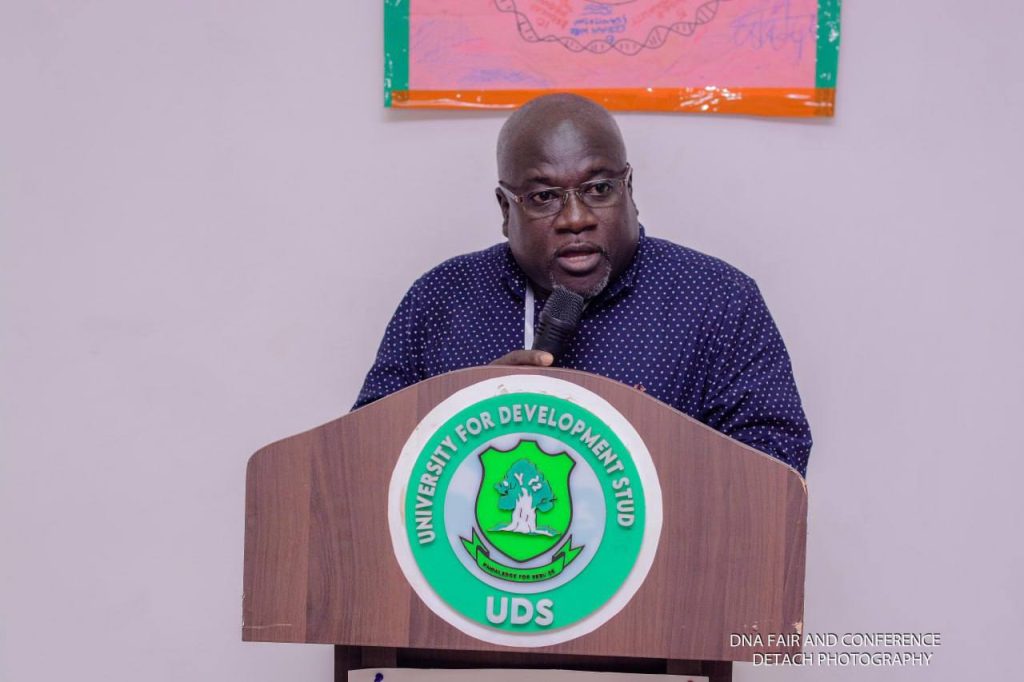
Exploring The Beauty of Genetics Through Words
A captivating poetry performance by Adjoa Yeboah Afari with the stage name The Adjoa Yeboah resonated deeply with the audience as it centred on the profound importance of DNA in achieving sustainable development. She conveyed the relationship between genetics and progress, shedding light on how understanding our DNA can unlock new avenues for sustainable growth and societal transformation. The performance added a unique and thought-provoking dimension to the event, underscoring the power of artistic expression in communicating complex scientific concepts and inspiring innovative thinking.

Panel Discussion: “From Science to Sustainability: Unlocking the Power of DNA for Ghana’s Future”
A thought-provoking panel discussion followed, featuring Dr. Francis Addy (molecular parasitologist), Dr. Mohammed Mustapha (Soil microbiologist), Dr. Lydia Quansah (Biotechnologist), and Yahaya Sumara Sulley (Forensic DNA enthusiast). Their diverse perspectives led to progressive insights on unlocking the power of DNA for Ghana’s sustainable development.
During the panel discussion, the panellists provided valuable submissions that covered various areas of sustainable development. These included one-health approaches to addressing issues related to veterinary, wildlife, and animal health. The discussion also highlighted the use of beneficial soil microbes to improve agriculture, as well as harnessing genetic traits of nutrient-dense orphan crops that are highly resistant to environmental stress, contributing to Ghana’s agriculture and food security.
Moreover, the panel discussion delved into the analysis of metabolites from the environment and how they can be utilized to understand soil nature for agricultural benefits, as well as for forensic purposes in addressing environmental pollution. An important aspect emphasized during the discussion was the need for scientists to take on the role of communicators themselves. By becoming advocates and policy initiators, scientists can ensure that scientific transformation leads to societal development beyond the confines of laboratories.
The panel discussion shed light on the significance of achieving Sustainable Development Goal 16, which can accelerate progress in all other SDGs and promote sustainable development in Ghana. Additionally, the use of DNA in providing justice in society, particularly in human identification for forensic science and population studies, was highlighted. Microbial markers were suggested as potential aids in identifying individuals, emphasizing their importance in forensic applications.
The panellists brought forth insightful opinions on the use of artistic expressions as a powerful tool to communicate the relevance of DNA in societal development from diverse perspectives. Notably, they emphasized the importance of incorporating art to reach out to specific audiences, including the hearing-impaired, local communities, and non-science audiences.
The panellists acknowledged that traditional scientific communication methods may not effectively resonate with all segments of society. As a solution, they proposed using artistic expressions such as visual arts, sign language performances, and culturally relevant presentations to bridge the communication gap.
For the hearing-impaired, visual representations and artistic displays can provide a more inclusive way to convey complex genetic concepts, making the subject matter accessible and engaging. By incorporating sign language performances and visual aids, scientific knowledge about DNA can reach a broader audience specifically in Ghana where performance art is highly appreciated. Hence through artistic expressions that align with local cultural contexts, DNA-related information can be conveyed in a relatable and meaningful manner, fostering greater understanding and acceptance.
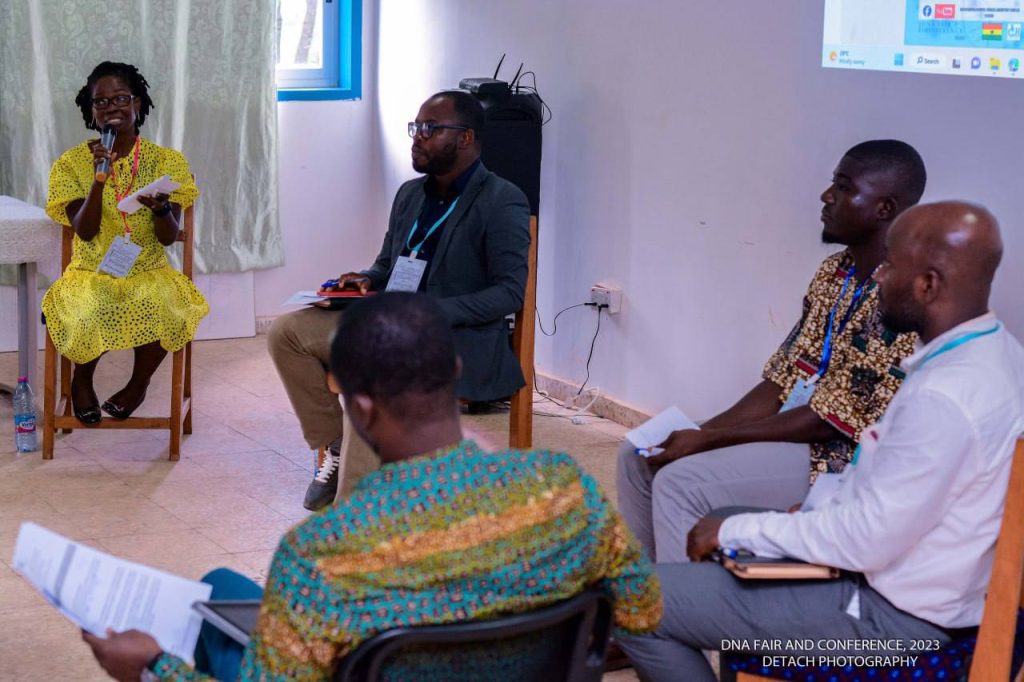
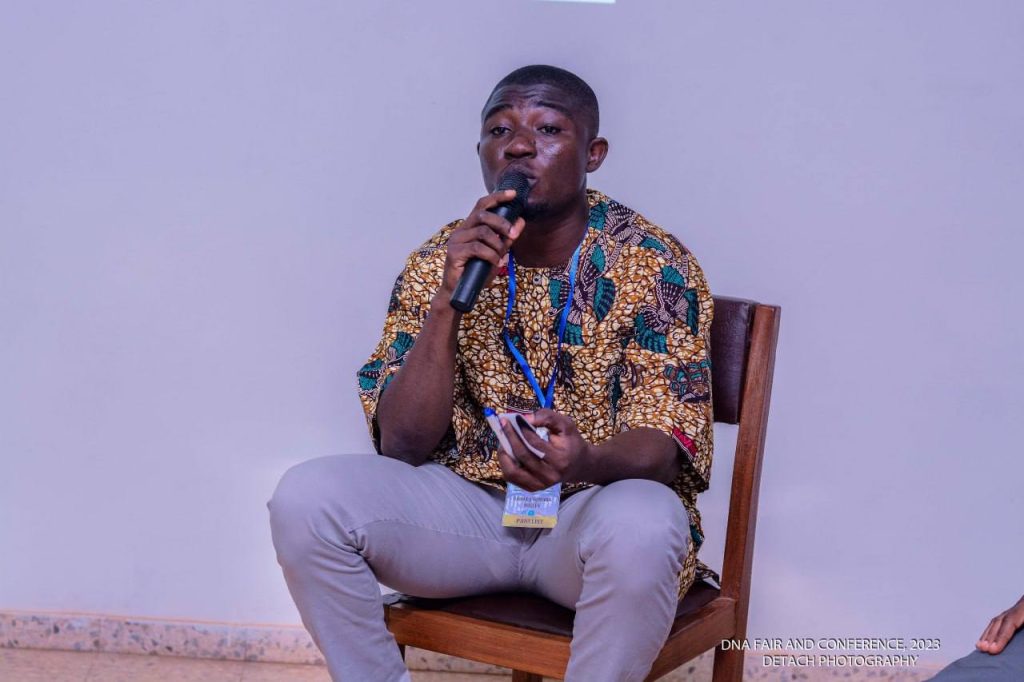

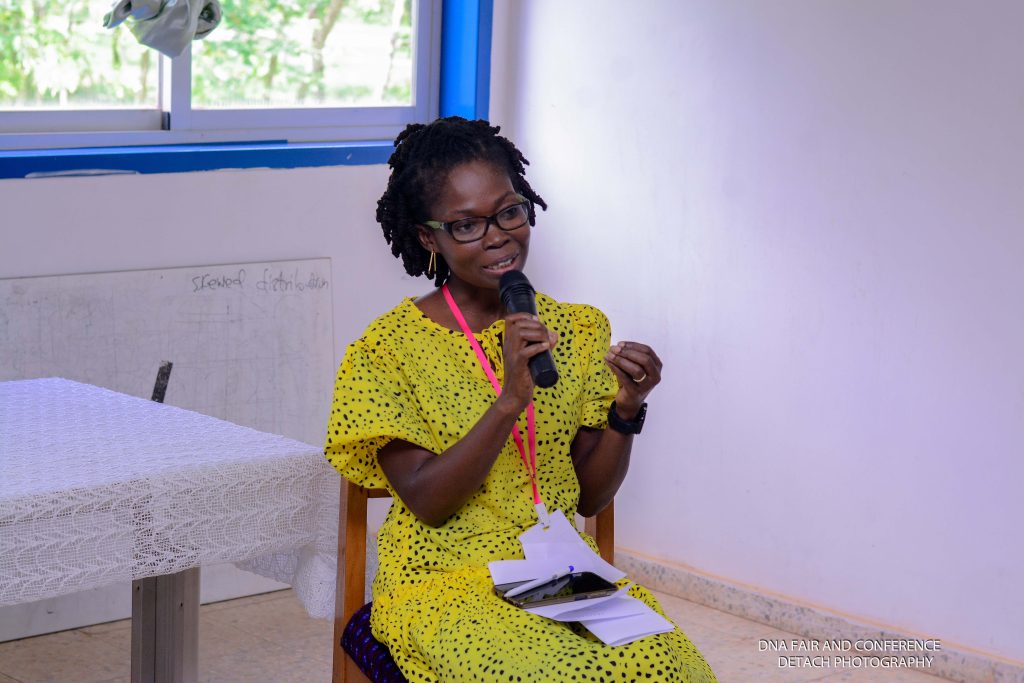

Prominent Voices in Science Communication
Dr. Osman Dufailu and Dr. Thomas Tagoe joined the event virtually. Dr. Dufailu advocated for the intersection of science, DNA, and art (SDA) and stressed the importance of effective science communication to avoid potential disasters in scientific endeavours. Dr. Tagoe emphasized the positive impact of the widespread scientific appreciation of arts and science confluence, leading to the potential for revolutionary advancements in various fields.
Poster Exhibition: Artistry in Student Research
During the event, students had the opportunity to present their research through artistic spectacle in the poster exhibition session. Notable presentations included ongoing research on microbial signatures as a tool for forensic human identification by Huzaima Aminu and the exploration of the genetic diversity and ethnohistory of major Ghanaian populations by Yahaya Sumara Sulley.

DNA Art Exhibition – Unleashing the Artistic Potential of DNA
The DNA Fair culminated with a captivating exhibition showcasing artistic representations of DNA concepts. The exhibition featured striking displays, including the use of DNA as forensic evidence, art inspired by COVID-19 viruses, Adinkra symbols, genetic repatriation, and heredity. This artistic exploration provided a unique perspective on the world of genetics and its relevance to society.
The DNA Fair and Conference concluded with networking sessions, fostering collaborations among attendees, and capturing memorable moments through photoshoots. The event’s success in blending science and art underscored the significance of multidisciplinary approaches to address challenges and envision a brighter future for Ghana.
The event garnered substantial attention on social media platforms in different countries. By encouraging the fusion of science and art, the conference left a lasting impact on the participants and set a precedent for future DNA-focused events in Ghana and beyond.
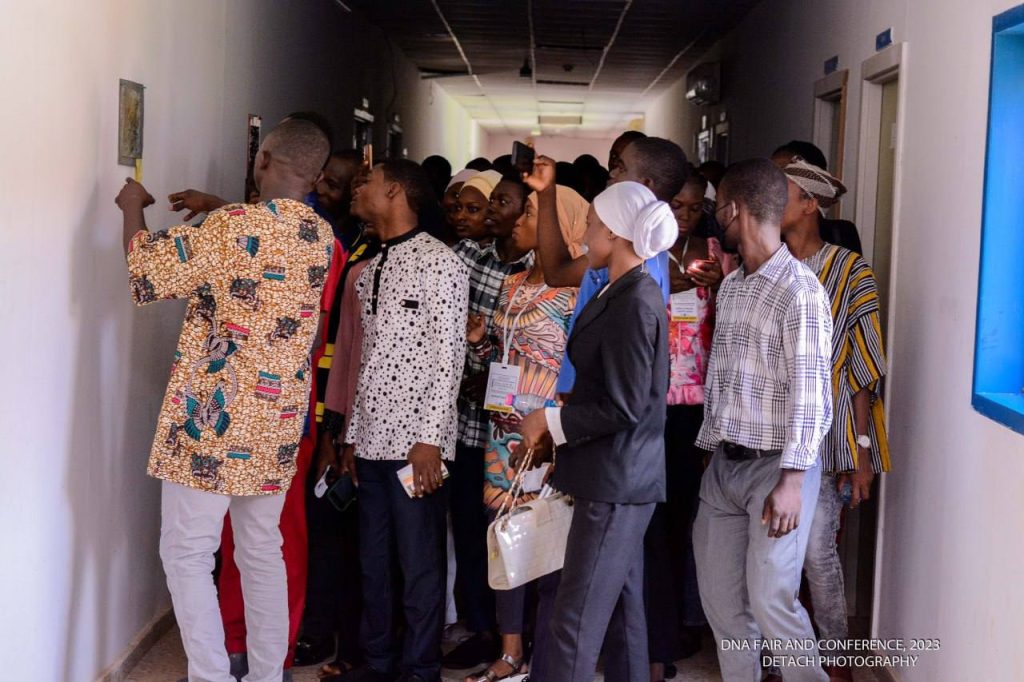
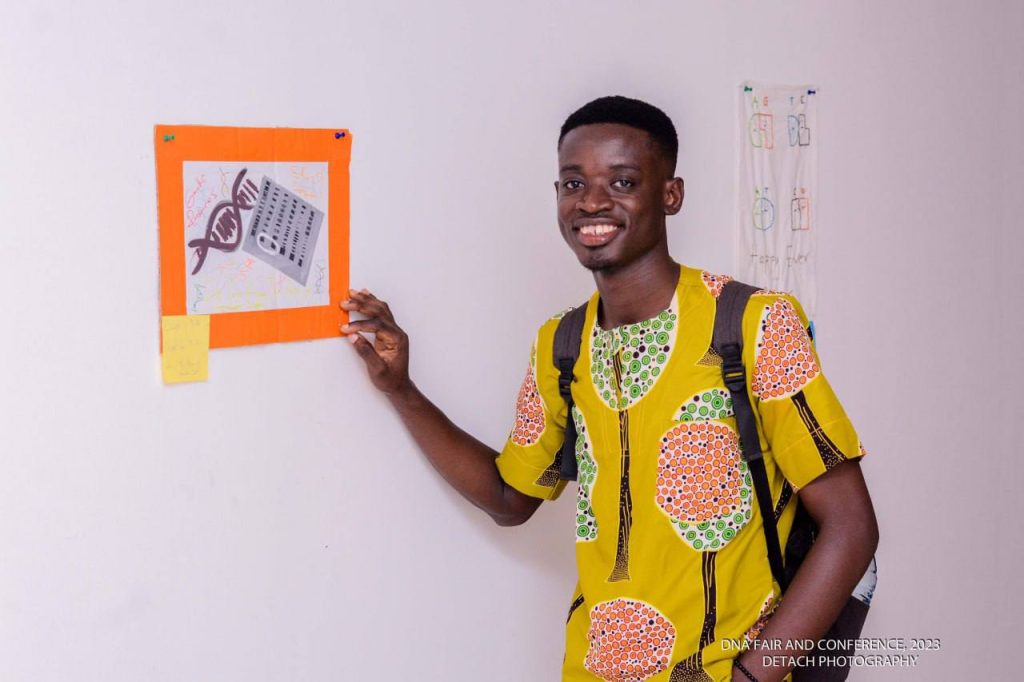
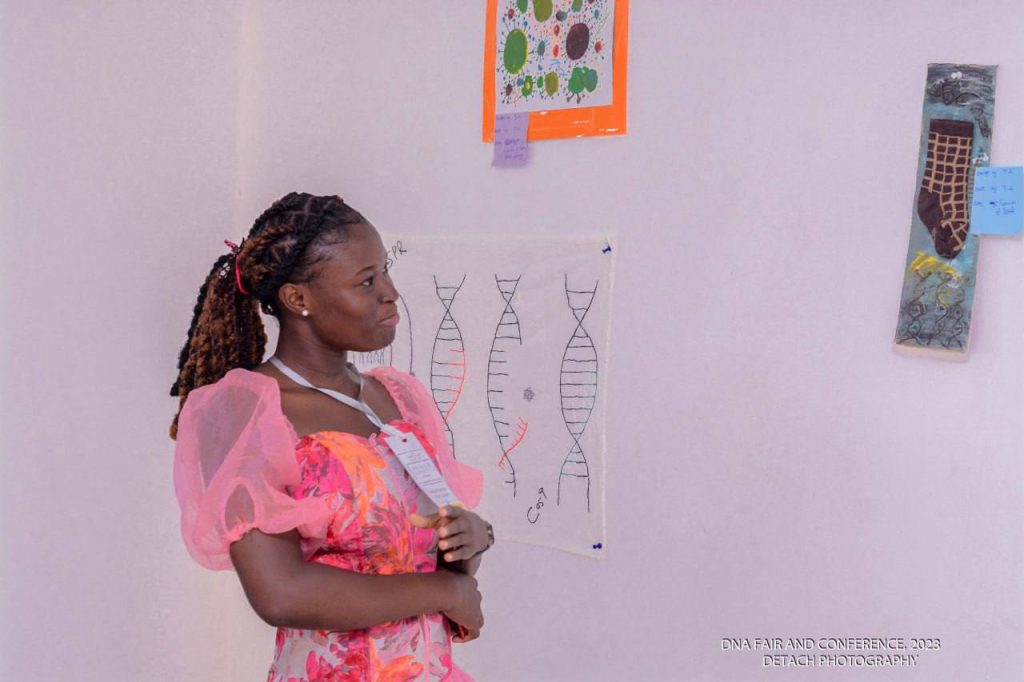
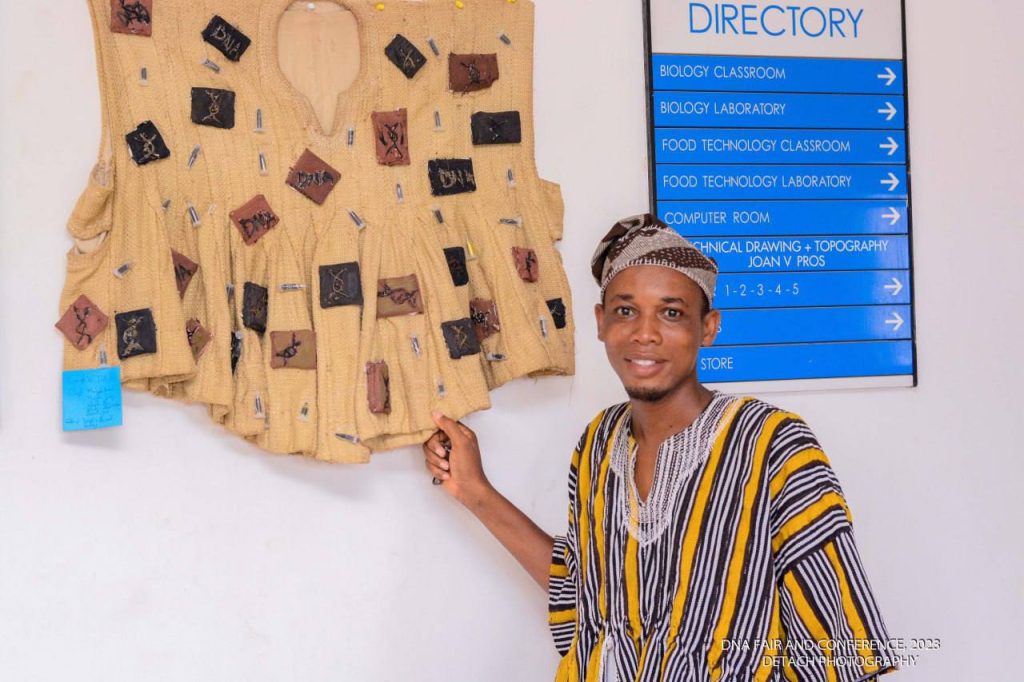
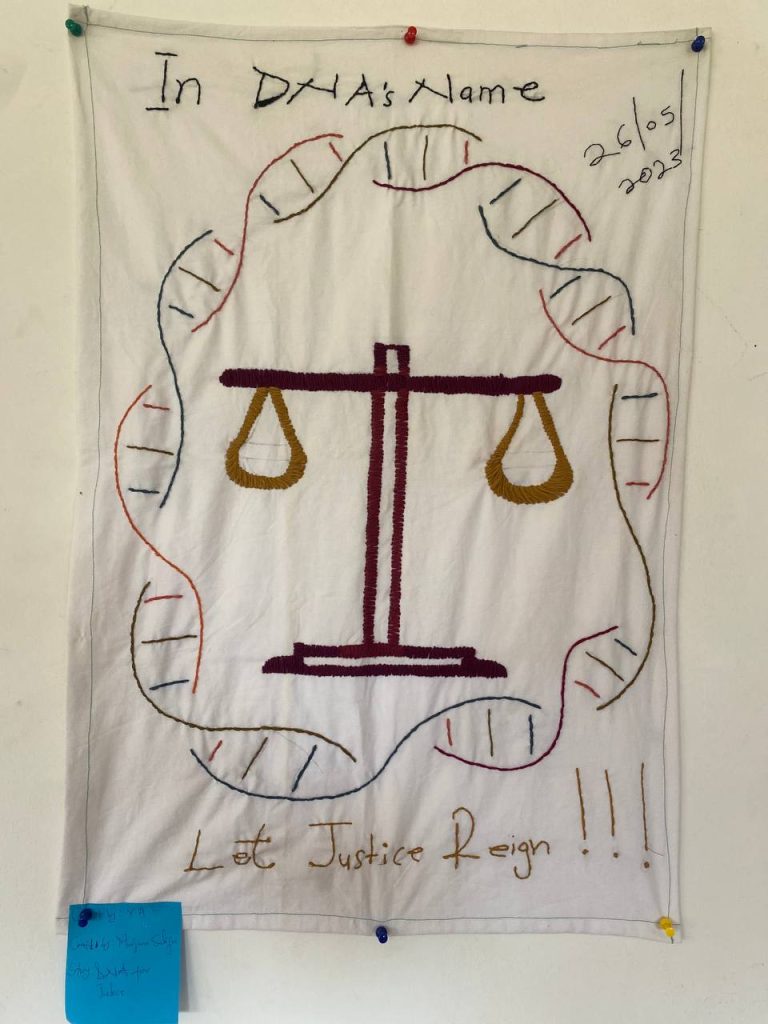
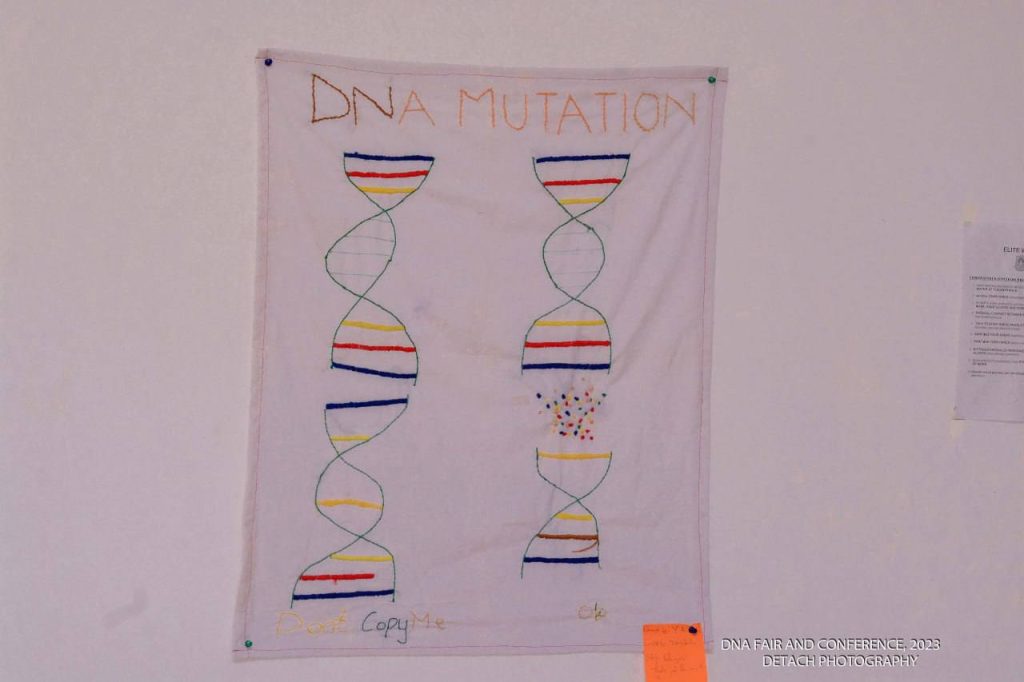
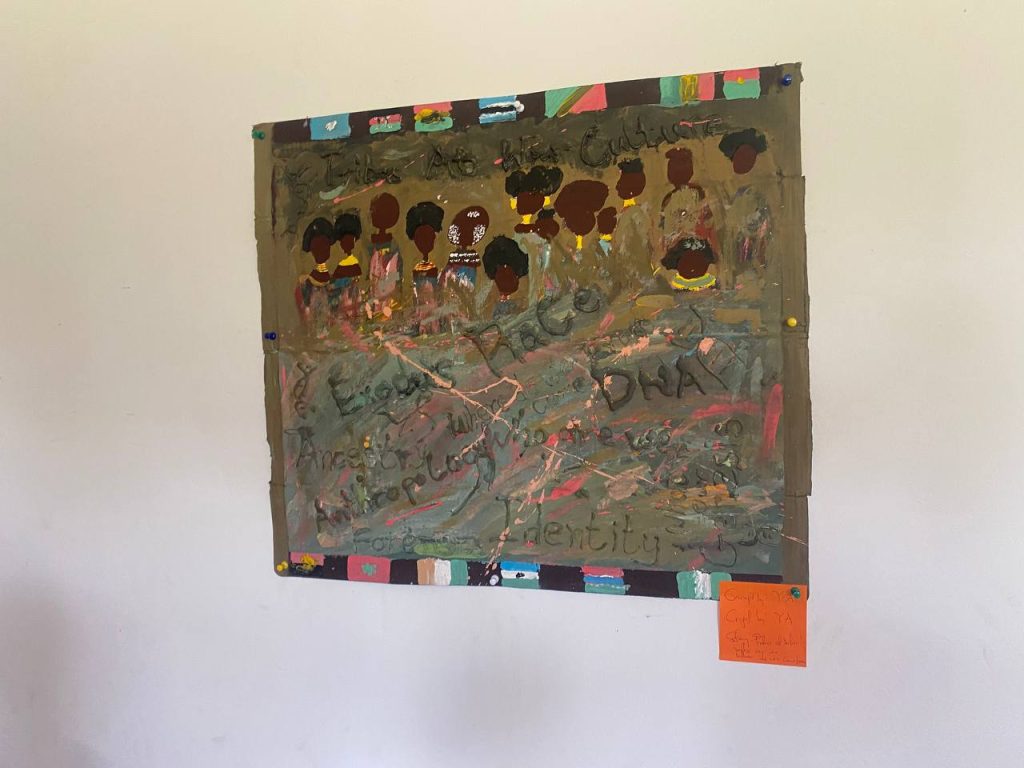

The distinguished presence of Professor Albert Kojo Quainoo (Senior Lecturer, Faculty of Biosciences, UDS), Professor Isaac Sackey (Senior Lecturer, Faculty of Biosciences, UDS), other faculty members from the UDS Faculty of Agriculture and Mr. Isaac Oboakoh (Lecturer, Faculty of Biosciences, UDS), who served as the MC and moderator, further enriched the occasion and exemplified the importance of hosting such scientific discourses while envisioning a promising future for Ghana as we embark on the journey towards a DNA revolution. Special thanks to GhScientific and other sponsors of this successful event.
